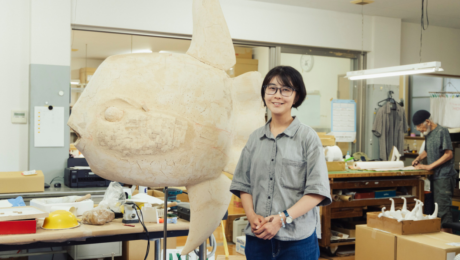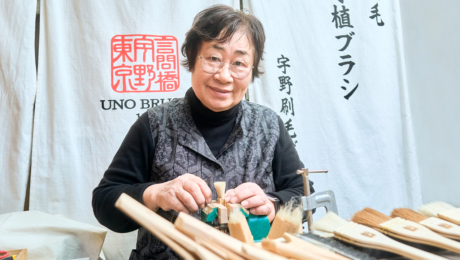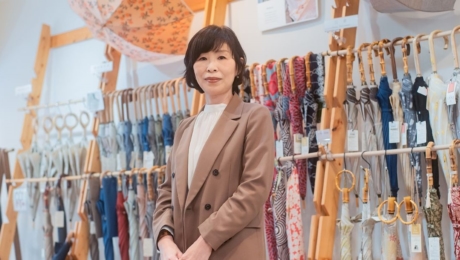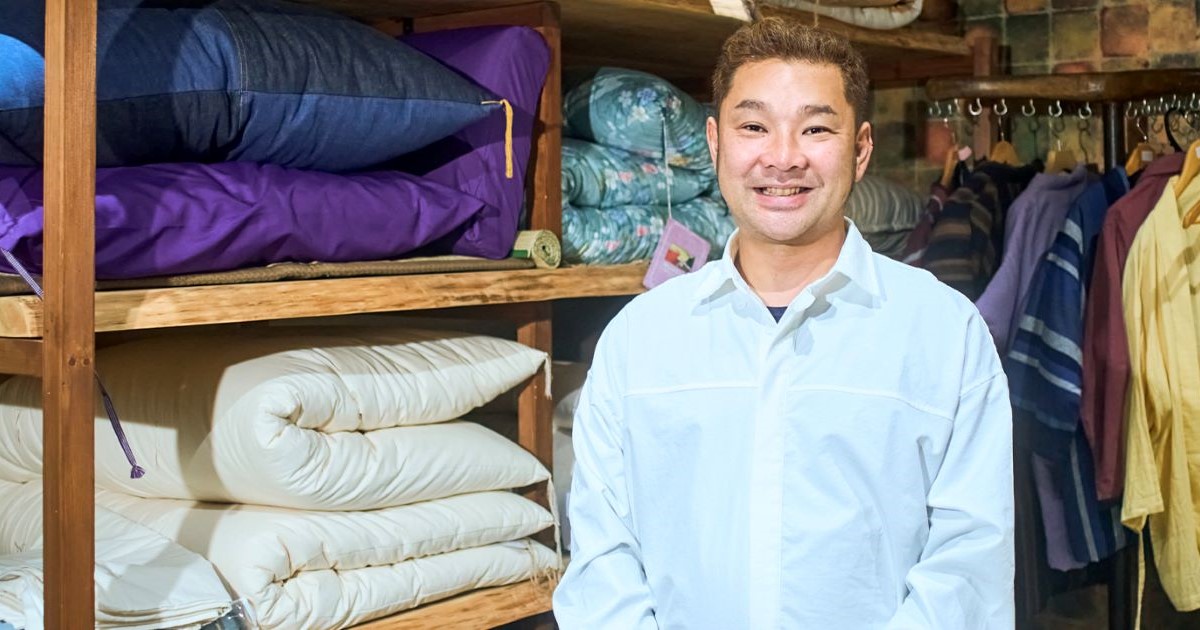

Saving the Planet with Futons! The Power of Organic Cotton with Mori Seimenjo’s VP
2025.01.28
LIFE“Inspired by cotton as a sustainable material, I began to take notice of other environmental issues,” says Kazuta Mori, vice president of Mori Seimenjo, a cotton mill with over a century of history. At their showroom in Toyocho, Koto City, customers from around the globe seek out high-quality futons made with organic cotton. Futons, Japan’s traditional bedding, have gained international recognition as “FUTON,” particularly popular in environmentally conscious regions like Europe and the US due to their plant-based cotton materials. Under the brand name “Futon Tokyo,” Mori Seimenjo runs an online shop catering to overseas markets.
Mori’s interest in organic cotton was sparked during his university years by an English text describing harsh labor conditions on large-scale plantations that produce most of the world’s cotton. Shocked by this reality and determined to make a difference, he explored cotton-producing regions worldwide as a backpacker, learning firsthand about the industry’s challenges.
“I’ve witnessed the difficult working conditions in countries like Myanmar and Laos, and I’ve always carried a sense of guilt about it,” Mori reflects. “Once I started helping with the family business, I began studying organic cotton from scratch, sourcing various types of cotton and experimenting to find the best material for futons. During a recent trip to India, one of our main suppliers, I saw firsthand that labor conditions are gradually improving. This reaffirmed my commitment to this work.”
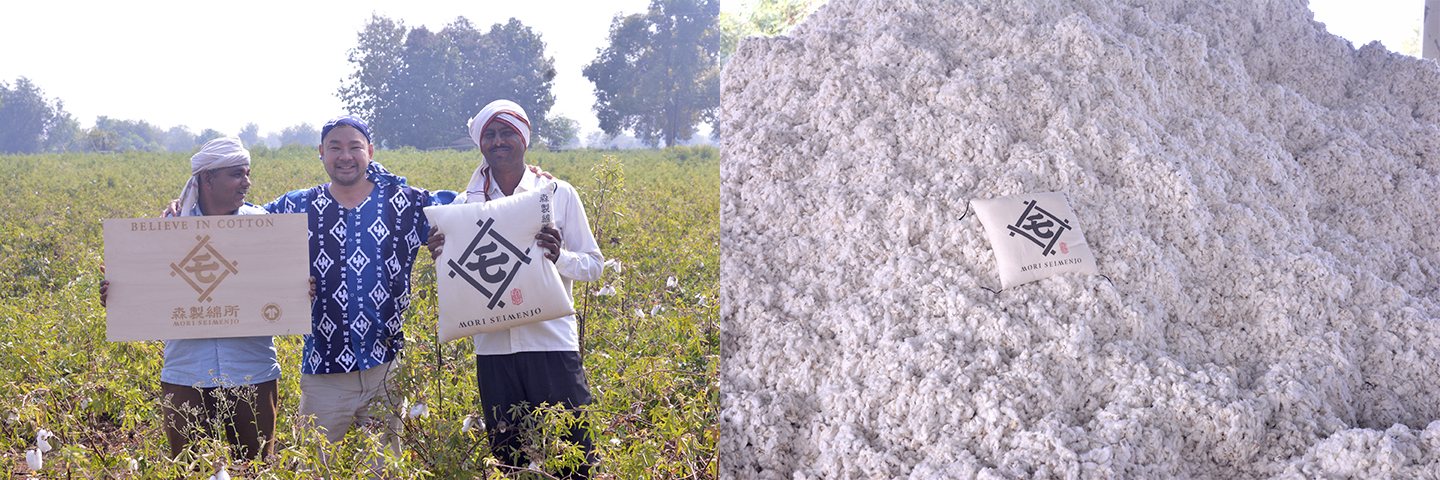
In November 2024, Mori participated in a panel discussion titled “Towards More Ethical Traditional Industries” at the Ethical Summit 2024, organized by the Japan Ethical Promotion Council. The term “ethical” emphasizes actions that consider people, society, and the environment—a concept widely recognized in the context of the UN Sustainable Development Goals (SDGs). Mori was invited to share his efforts as a representative of companies advancing ethical practices in traditional industries.
Mori Seimenjo has launched initiatives like the Re-born Cotton Project, where they distribute discarded cotton seeds to the public for free, encouraging people to grow cotton and connect with the material. When the project was promoted on social media, over 300 people quickly signed up, reflecting a growing awareness of raw material quality among consumers. Mori’s innovative ideas have inspired his employees, fostering a natural rise in ethical awareness within the company.
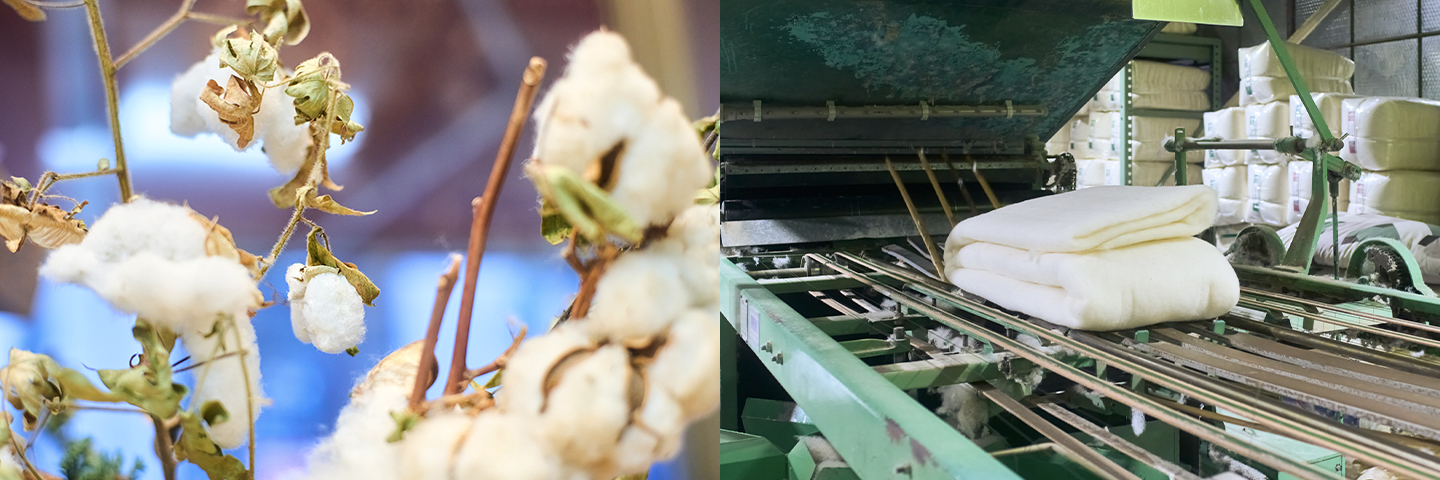
Although they have begun growing their own cotton, only about 3% of the seeds sprout, making cultivation challenging. Producing enough cotton for a single futon requires the equivalent of 40 T-shirts, presenting significant hurdles in Japan’s limited agricultural space. Rather than aiming for large-scale production, Mori sees this as a way to share the company’s pride in craftsmanship with employees.
“As a manufacturing company, our mission is to ensure that the organic materials carefully grown by local farmers reach consumers in the best possible form. It’s our responsibility to pass on a ‘better baton’ to the next link in the chain. We mustn’t compromise these carefully cultivated materials with poor processing or falsely claim a product is organic when only a small percentage of its raw materials meet that standard. That’s why our company adheres to international certifications for organic textiles, adhere to their rules, and ensure full traceability in our processes,” Mori explains.
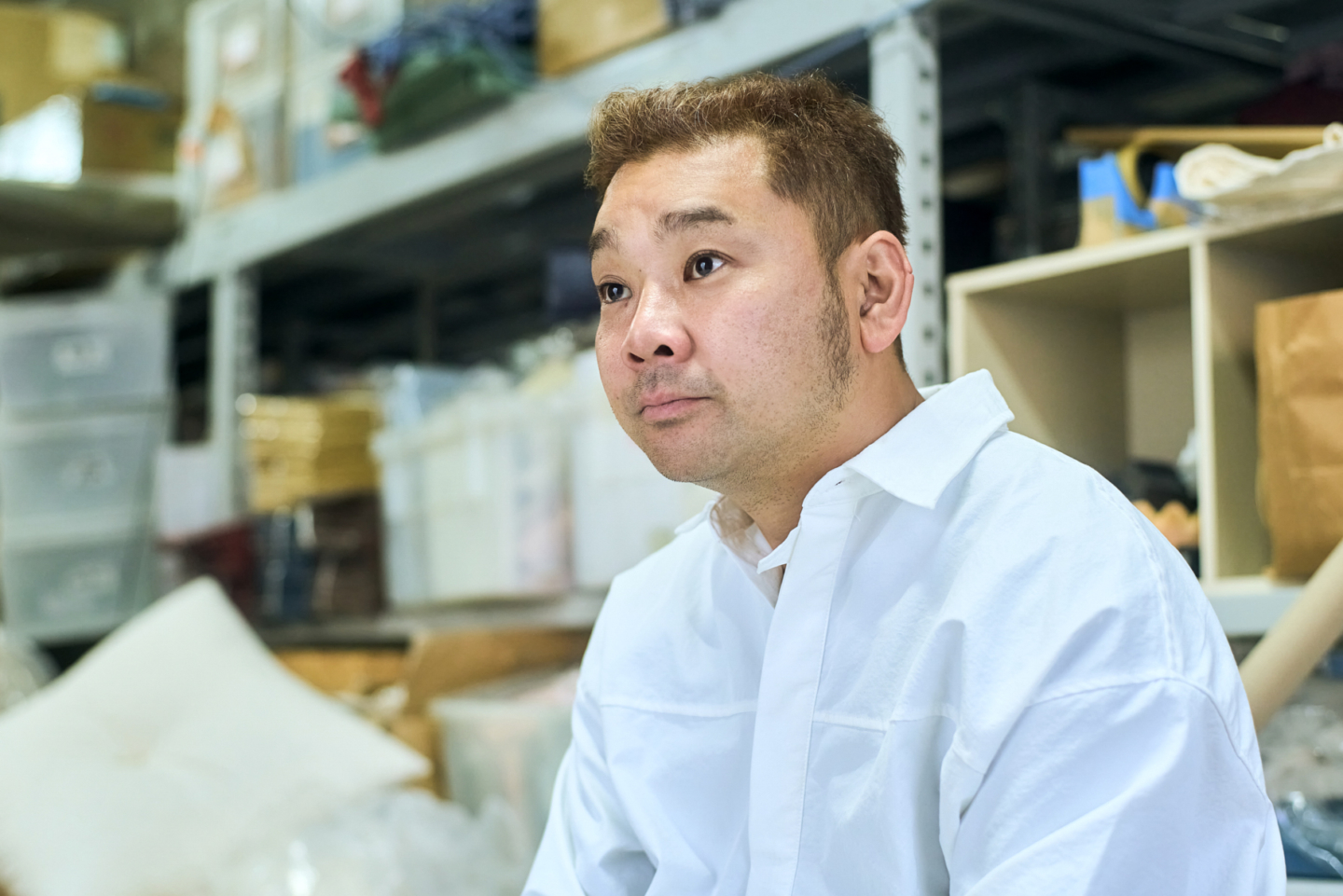
The carefully cotton at Mori Seimenjo is not only used for futons but also for large cushions favored by traditional rakugo storytellers and sumo wrestlers, as well as protective packaging for transporting national treasures, reflecting its exceptional quality. Mori also dreams of applying this technology to the marine environment.
“Due to rising sea temperatures, many coastal areas are facing the issue of sea desertification. As someone involved in marine conservation through an NPO, I’ve learned that seaweed spores need a ‘futon’ to settle on. I’m exploring ways to adapt our technology to address this challenge.”
Like cotton carried by the wind, Mori’s efforts reach far and wide, even beneath the ocean waves. His activities demonstrate how a single material can inspire environmentally friendly initiatives that ripple across the globe, offering a hopeful glimpse into the future.




